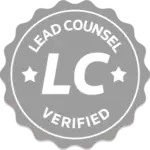Colorado Premises Liability Attorneys
Talk With Us TodayDenver
(303) 214-7927Address: 1512 Larimer St Ste 600, Denver, CO 80202 Call Any Time – 24/7
Colorado Premises Liability Lawyers
At Ramos Law, we understand that injuries caused by unsafe property conditions can have severe, long-lasting impacts on your health and livelihood. That’s why our Colorado premises liability attorneys bring a unique advantage to your case; our founder, Dr. Joseph Ramos, is both an attorney and a board-certified emergency physician. His combined medical and legal expertise gives our clients a powerful edge in navigating complex injury claims, ensuring that the full extent of your injuries is documented and that negligent property owners are held legally accountable. In Colorado, premises liability law places a duty on property owners and managers to maintain safe environments, and holding them accountable requires a deep understanding of both the law and the medical realities of injury, something our team is uniquely qualified to deliver.
Tell Us About Your Case
What Is Premises Liability?
Premises liability refers to a property owner’s legal responsibility to maintain their property in a reasonably safe condition for visitors. If someone is injured due to a dangerous condition, such as a wet floor, broken steps, or inadequate lighting, the owner or occupier may be held liable for failing to address or warn about the danger.
These claims often arise from accidents that occur in stores, hotels, rental properties, or private residences. When negligence results in injuries, victims have the right to seek compensation for their medical expenses, lost wages, and other damages.
Colorado’s premises liability laws, outlined in C.R.S. § 13-21-115, set specific rules for when and how property owners can be held accountable based on the injured person’s reason for being on the property.
Colorado’s Premises Liability Act
Colorado law specifically governs how premises liability cases are handled through the Colorado Premises Liability Statute (C.R.S. § 13-21-115). This statute creates a framework that determines a property owner’s responsibility based on the injured party’s status as a trespasser, licensee, or invitee.
Three Classifications of Visitors:
Invitees – Customers, clients, or others invited for mutual business benefit receive the highest protection. Property owners must exercise reasonable care to protect invitees from dangers they know about or should discover through inspection.
Licensees – Social guests or people permitted on the property for their own purposes. Owners must warn licensees about known dangers that aren’t obvious.
Trespassers – Individuals on the property without permission. Owners generally only need to avoid willfully causing harm, with special protections for children.
The court determines your visitor status, which directly impacts the duty of care owed to you and your potential compensation.
Premises Liability Available Compensation
Victims of premises liability accidents may recover various types of damages:
Medical expenses – Both current treatment and anticipated future care
Lost income – Wages lost during recovery and reduced earning capacity
Pain and suffering – Physical discomfort and emotional distress
Permanent disability – Long-term limitations and lifestyle changes
Disfigurement – Scarring or physical alterations from injuries
In extreme cases, Colorado courts may allow for an award of punitive damages to punish property owners for particularly reckless behavior and deter similar conduct in the future.
How to Prove a Premises Liability Claim in Colorado
To succeed in your premises liability case, your attorney must establish these critical elements:
Legal duty of care – The property owner owed you protection based on your visitor status
Breach of duty – The owner failed to meet their legal obligations
Causation – This negligence directly caused your injuries
Damages – You suffered actual harm and financial losses
Strong Evidence Is Critical:
Incident reports filed with the property owner
Photographs of the dangerous condition before repairs
Surveillance video capturing the incident
Medical records documenting injuries
Building maintenance logs
Witness statements and contact information
Expert testimony regarding building code violations
Documentation of previous similar incidents
Common Causes of Premises Liability Injuries
Property owners must address hazards promptly or clearly warn visitors of potential dangers. Some of the most common causes of premises liability injuries include:
Slip and Falls – Caused by wet floors, icy sidewalks, or uneven surfaces. These incidents often lead to broken bones, head trauma, or spinal injuries.
Trip and Falls – Resulting from hazards like loose carpeting, exposed cords, or cracked pavement, leading to serious harm such as fractures or ligament damage.
Inadequate Security – In areas where criminal activity is foreseeable, owners may be liable for assaults or robberies due to a lack of or inadequate security personnel.
Falling Objects – Unsecured merchandise or fixtures in retail environments can fall and seriously injure unsuspecting customers.
Poor Lighting – Especially in stairwells, parking garages, and walkways, poor lighting increases the risk of falls and other accidents.
Dog Bites – Under Colorado law (C.R.S. § 13-21-124), dog owners may be strictly liable when their animals cause serious injury to lawful visitors, regardless of prior aggression.
Electrocution Injuries – Caused by exposed wiring, faulty outlets, or ungrounded electrical systems, which can result in burns, nerve damage, or cardiac arrest.
Toxic Exposure Injuries – Exposure to hazardous chemicals, mold, or carbon monoxide on a property can lead to serious respiratory or neurological conditions.
Fires or Explosions – Faulty wiring, gas leaks, or lack of fire safety measures can result in severe burns, smoke inhalation, or fatal injuries.
These incidents are often preventable. When property owners fail to correct known hazards or warn visitors, they may be held legally responsible for resulting injuries.
Tell Us About Your Case
What to Do After a Property Injury in Colorado
Your actions immediately following an injury on someone else’s property can significantly impact your claim:
Report the incident to property management or ownership
Document everything – Take photos of the hazard and your injuries
Gather witness information from anyone who saw what happened
Seek immediate medical attention even if injuries seem minor
Preserve evidence, including footwear and clothing worn during the incident
Avoid giving recorded statements to insurance companies as these may be used to minimize your claim.
Contact a premises liability attorney before accepting any settlement offers
Why You Need a Lawyer for a Colorado Premises Liability Claim
Premises liability cases involve complex legal standards and powerful opposition. Insurance companies employ tactics to minimize your compensation or deny your claim entirely. An experienced premises liability attorney provides crucial advantages:
Early investigation before the evidence disappears
Expert knowledge of Colorado’s comparative negligence rules
Accurate valuation of your current and future damages
Strategic negotiation with insurance adjusters
Trial preparation if a fair settlement isn’t offered
Premises liability claims are complex—don’t face them alone. An experienced attorney can help you fight back.
(FAQ) Frequently Asked Questions
Can I sue if I fell on someone's icy sidewalk in Colorado?
Yes, if the property owner failed to reasonably clear ice and snow within a proper timeframe. In many areas, such as Denver, property owners must remove snow and ice within a certain amount of time after a storm ends, or they risk liability for resulting injuries. Businesses and residential property owners must take precautions to prevent foreseeable slip and fall injuries.
What if I was partially at fault for my injury?
Colorado follows modified comparative negligence rules under C.R.S. § 13-21-111—you can still recover damages unless you were 50% or more at fault. If a plaintiff is found 50% or more at fault, they cannot recover damages under Colorado law. Your compensation will be reduced by your percentage of responsibility. For example, if you’re awarded $100,000 but found 30% at fault, you would receive $70,000. This makes having skilled legal representation crucial to minimize your assigned fault.
Is there a deadline to file a premises liability lawsuit?
Yes. In Colorado, you generally have two years from the date of the injury to file a claim under C.R.S. § 13-80-102. Certain claims involving government entities have shorter deadlines and special notice requirements under the Colorado Governmental Immunity Act (CGIA). Missing these deadlines typically bars you from recovering compensation regardless of how strong your case is, which makes consulting an attorney promptly essential.
Can I pursue a claim if I was injured at a friend's house?
Yes. Most homeowners’ insurance policies cover premises liability claims, allowing you to seek compensation without directly suing your friend. These claims are handled through insurance, similar to how auto accident claims work, and typically don’t impact your personal relationship.
Get the Compensation You Deserve
Colorado premises liability laws hold property owners accountable for dangerous conditions that cause injuries. When negligent maintenance, inadequate security, or failure to warn visitors results in harm, victims have the right to seek full compensation for their losses.
Injured on someone else’s property? Contact our team today to discuss your case and fight for the compensation you deserve.
Need Advice From Expert Lawyers?
Testimonials
Related Posts
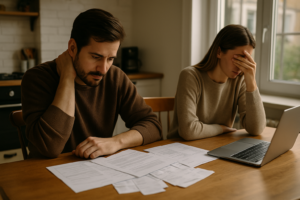
Hidden Costs of Personal Injury: What Victims Miss When Calculating Compensation
The Surprising Financial Aftermath of an Injury When accidents happen, the true cost extends far beyond initial medical bills. Victims often discover unexpected financial burdens
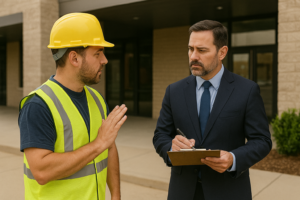
7 Strategies to Avoid Premises Liability Claims on Your Company
Protecting Your Business Against Premises Liability Claims Businesses across America face potential financial claims from premises liability lawsuits on a daily basis. These increasingly common
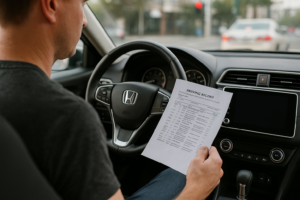
How Your Driving Record Can Impact Your Accident Claim
Understanding how your driving history influences your compensation While many focus solely on the specifics of their current accident, it’s essential to recognize that your
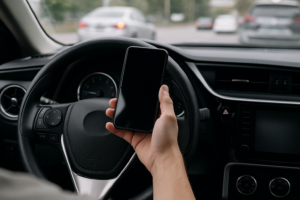
How Cell Phone Records Can Establish Fault in Car Accidents
Using mobile data to uncover distracted driving and prove responsibility Each year, thousands of accidents are caused by drivers using phones behind the wheel. According





